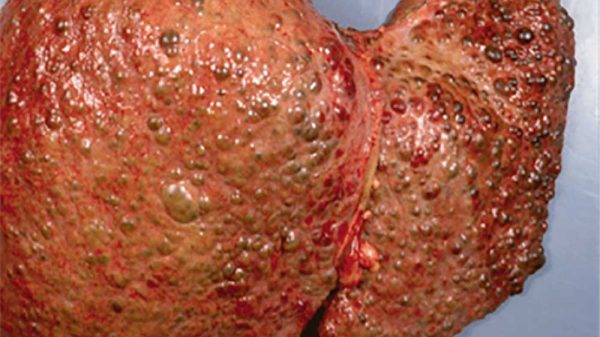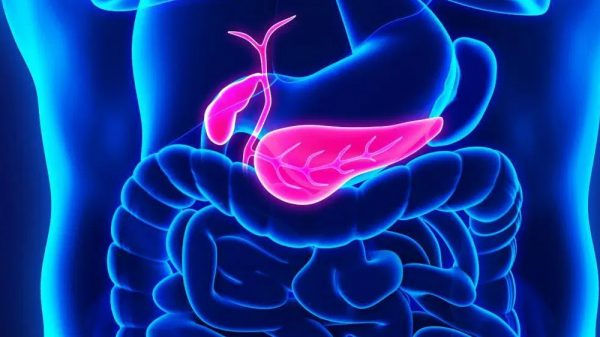It may seem counterintuitive that psychological stress can manifest physically. The implications of stress for disease risk and progression is a relatively new frontier for numerous conditions, including fatty liver disease. Here we discuss everything you need to know about stress, stress-related conditions, and fatty liver disease. We answer the question: Can stress make you sick?
What Is Stress?
The term “stress” casts a broad net to encompass any mental or physical situation that elicits a physiological stress response. Stress is no fun, and it can, in fact, make you sick. A wide range of illnesses is associated with the detrimental effects of stress.
Mental Stressors
Mental stressors refer to any psychological factors that trigger a stress response. Psychosocial stressors include facing discrimination, being bullied, navigating abusive relationships, or managing difficult family dynamics.
Mental stressors can also stem from anxiety related to the pressure to meet work deadlines or anxiety from emotional turmoil surrounding decision-making. The psychological impact that results from trauma can also trigger a long-lasting stress response that induces physiological changes.
Physical Stressors
Physical stressors may refer to impending threats to our survival. Immense physical exertion, sleep deprivation, illness, inflammatory foods, or physically demanding jobs can also be categorized as physical stressors.
Physiological Stress Response
The key here is that both mental stressors and physical stressors cause the same physiological stress response, which in some cases is also known as the fight-or-flight response. During an acute reaction to a mental or physical stressor, the sympathetic nervous system is activated and the adrenal gland releases epinephrine and norepinephrine as well as the stress hormone cortisol. You may notice that your heart rate increases, and you may also be sweating or shaking.
When consistently faced with mental and/or physical stressors, stress becomes a chronic condition. Your cortisol levels are constantly raised, and on a molecular level, your cells and organs are experiencing inflammation and oxidative stress. Inflammation describes an overactive state of the immune system. The immune system is designed to heal the body from injury, protect against abnormal cell growth, and keep the body safe from microbial infection. However, in a state of inflammation, the immune system exhibits maladaptive activity and causes damage to cells.
Inflammation is further compounded by oxidative stress, which describes the accumulation of waste products in cells. Each of your cells is hard at work to produce energy to carry out all biological processes, and if waste products build up more quickly than they can be cleared, this can damage cells. Certain organs within the cells, particularly the mitochondria, are connected to oxidative stress.
You may notice symptoms such as fatigue, difficulty sleeping, exhaustion, nausea, digestive problems, and other similar symptoms. Over time, chronic inflammation and oxidative stress can lead to organ damage and more serious conditions.
Stress Does Make You Sick
The physiological response to stress is implicated in numerous health problems and conditions because it impedes the body’s ability to properly heal.
Metabolic Syndrome
Stress and blood sugar are related through cortisol. Chronic stress leads to consistently high levels of cortisol in the bloodstream. Cortisol is helpful in temporarily stressful situations that require immediate attention and energy output since it tends to raise blood sugar levels.
However, if cortisol levels are chronically high, this can contribute to high blood sugar, insulin resistance, type 2 diabetes, and weight gain.
Metabolic syndrome is the primary co-occurring condition and risk factor associated with fatty liver disease. By association, since stress contributes to the development of metabolic syndrome, stress could also be implicated in the development of fatty liver disease.
Heart Disease
Uncontrolled, chronic stress means your blood pressure is likely raised beyond a healthy level. Over time, hypertension leads to scarring of the blood vessels, raising the likelihood of developing heart disease and experiencing a heart attack or stroke.
Moreover, consistently high levels of adrenaline make your heart work harder than usual. Over time, this could lead to the burning out and weakening of heart muscles, which raises the risk of heart attack.
Allergic Reactions and the Common Cold
For some people, the acute inflammatory stress response results in allergic reactions, like hives. Stress may even play a role in worsening seasonal allergies. Since stress triggers an inflammatory reaction, the immune system becomes highly sensitive and reactive to allergens like pollen or molds.
In addition, inflammation that results from chronic stress can make it more likely to contract illnesses like the common cold or the flu. When the immune system is exhibiting inflammatory activity, it is unable to respond efficiently and effectively to invading pathogens. This is why, when you’re sleep-deprived and traveling, you’re more prone to catching a cold.
Autoimmune Diseases
Chronic stress plays a particularly critical role in the risk of developing autoimmune diseases like multiple sclerosis (MS), lupus, or irritable bowel syndrome. The likelihood of developing an autoimmune disease is determined by a mix of genetic and environmental factors. In large part, the environmental factors that influence the development of autoimmunity include stressors and dietary deficiencies.
Stress seems to also trigger flare-ups of an autoimmune disease. The defining characteristic of autoimmune disease is a malfunctioning immune system due to inflammation. Under normal circumstances, the immune system is activated to fight invading pathogens and inhibit the growth of malignant cells. However, autoimmunity describes a condition in which the immune system attacks healthy tissue, causing debilitating symptoms. As a result, the immune system because hypersensitive to stressors.
Mental Illness
The inflammatory stress response has repercussions for brain health. Inflammation and oxidative stress have an impact on brain function. Brain activity is particularly sensitive to oxidative stress since neurons require a careful balance of neurotransmitters and electrical activity to maintain neurological homeostasis. Research has shown that inflammation and oxidative stress is related to mental illnesses like depression, anxiety, bipolar disorder, and schizophrenia.
Is There a Direct Connection Between Stress and Fatty Liver Disease?
Simply based on the fact that stress is a culprit in diseases across all organ systems, it must also be true that stress is also involved in fatty liver disease. Stress seems to be connected to a higher risk of nonalcoholic fatty liver disease, although researchers have not pinpointed biological mechanisms. Moreover, the direction of the relationship between stress and fatty liver disease is undetermined in the scientific literature: Does stress worsen the fatty liver disease, or does fatty liver disease worsen stress?
The research examining the direct impact of stress on fatty liver disease is inconclusive and not comprehensive at this point. However, there does seem to be a consistent association between higher stress levels and a higher risk of fatty liver disease. Not only that, but some research indicates that depression is associated with a higher degree of liver cell damage among people with fatty liver disease. (1) Research also suggests that depression and anxiety may worsen the progression of fatty liver disease. (1)
A recent study published in Nature evaluated the connection between perceived stress and fatty liver disease prevalence in 170,000 adults. Results revealed that higher levels of perceived stress were associated with a higher risk of fatty liver disease. (2)
Proposed biological mechanisms that may explain the impact of stress on fatty liver disease are -unsurprisingly – linked to inflammation. Systemic stress-related inflammation affects nearly all organs, so there is little reason to believe that the liver would be spared. Inflammation may alter hepatic processes for metabolizing fats, causing fat molecules to more readily accumulate in liver tissue. Stress-related inflammation may also be linked to the worsening of fatty liver disease since inflammation exacerbates cellular damage.
The field of research evaluating the role of stress in fatty liver disease is fairly new. Further explorations will yield more information and shed light on biological mechanisms.
Stress Management to Help Reverse Fatty Liver Disease
Regardless of whether stress plays a role in directly modulating the liver’s metabolic processes, stress is certainly a negative influence on overall health. Chronic stress has already been directly linked to many health problems, and likely contributes to fatty liver disease either directly or indirectly.
Ways to Mitigate and Cope with Stress
1. Eating Healthy
The same foods that help reverse fatty liver disease are also a critical part of protecting your body from the effects of stress. Eating healthy foods helps to counteract the physiological stress response. An anti-inflammatory diet is one that is rich in vegetables, fruits, whole grains, nuts, legumes, seeds, and proteins that offer ideal ratios of essential amino acids. The vitamins, minerals, and antioxidants present in whole foods are crucial for protecting against inflammation and oxidative stress, while also curbing the effects of cortisol on blood sugar.
As part of an anti-stress diet, avoiding inflammatory foods like refined grains, sugars, and processed foods helps prevent stress-related inflammation and fight against the effects of cortisol.
Interestingly, the benefits of a healthy diet plan for physiological stress response may also have a positive impact on the mental symptoms associated with stress. An anti-inflammatory diet can reduce inflammation in the brain, helping you feel calmer and less anxious.
2. Regular Exercise
Exercise helps to relieve tension and mental stress.
From a physiological perspective, exercise may play a role in lowering cortisol levels while also releasing mood-boosting endorphins. Regular aerobic exercise also counteracts the impact of stress on blood pressure. Aerobic endurance strengthens your muscles, improves arterial function, and strengthens your heart, which counteracts high blood pressure.
3. Stress-Relieving Activities
Stress-relieving activities will vary from person to person, depending on personal preferences. Regardless of what the particular activity is, it’s important to use relaxation techniques for at least a few minutes every day, in order to successfully lower your stress levels. Helpful stress-relieving activities may include yoga, meditation, reading a book, journaling, taking a walk, calling a friend, or watching a funny show.
Conclusion
Determining the role of stress in the development and progression of fatty liver disease is on the horizon. Based on evidence that describes the impact of stress on other disease pathologies, as well as recent research, it can be assumed that stress may negatively impact fatty liver disease. Incorporating stress-reduction techniques into your routine can only be a beneficial addition to the fatty liver disease diet plan and lifestyle.
References:























